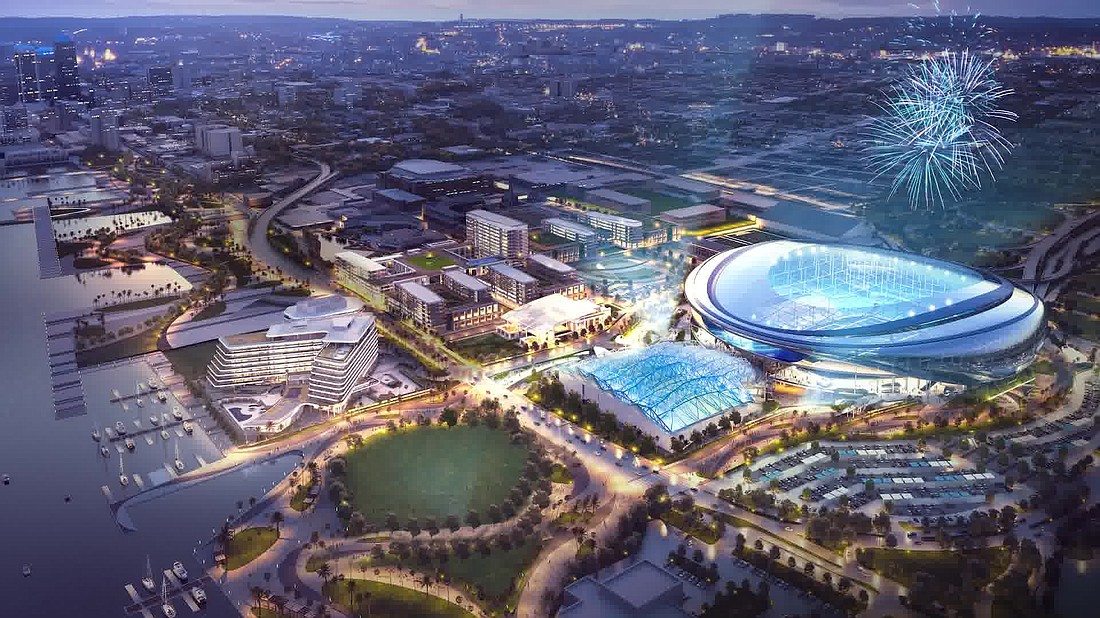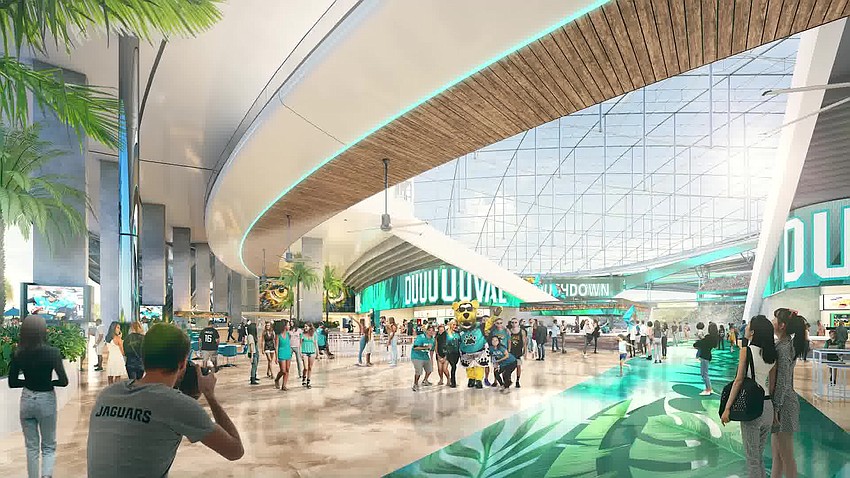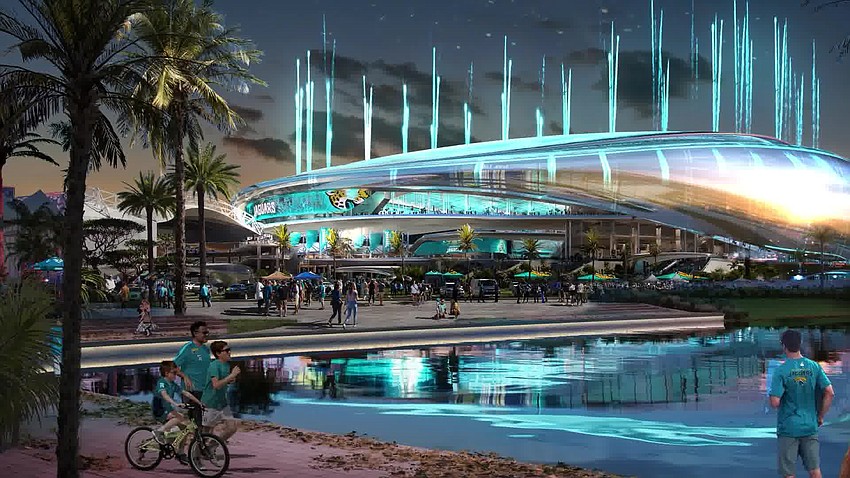
The city of Jacksonville is extending its deadline for bids on a contract to provide the city with expertise in planning and preconstruction issues related to potential stadium improvements for the Jacksonville Jaguars.
After the original deadline passed at 2 p.m. Dec. 20, the city reported that bids would be accepted until 2 p.m. Jan. 10 under the extension.
The city Public Affairs Office said at least one bid was submitted by the original deadline, but other firms that were interested in pursuing the contract requested more time to prepare their bids due to the complexity and scope of services in the contract.
Services include aiding the city’s negotiating team in reviewing construction estimates, preparing budgets and analyzing the durability of the stadium’s infrastructure.
A key element of the work is to help determine the exact construction costs for the stadium and a companion dining and entertainment district, which were roughly estimated by the Jaguars at $1.75 billion to $2 billion when the conceptual plans for the stadium project were unveiled in June.

The team is seeking a 50-50 split on paying for its proposed “Stadium of the Future” and adjacent complex, with city taxpayers picking up half of the costs.
The new stadium, as envisioned in the conceptual plans, would include a see-through shading structure protecting all seating areas from direct sunlight and inclement weather, wraparound concourses four times wider than the current ones at EverBank Stadium, and lookout platforms with views of the Downtown skyline and St. Johns River.
After bids are opened Jan. 10, they will be scored and a contract will be awarded.
The winning firm will work with the negotiating team led by Mike Weinstein, a top adviser to Mayor Donna Deegan’s administration, and Chicago-based law firm Sidley Austin, whose work on stadium deals includes representing the state of New York in negotiations with the Buffalo Bills and with the Washington Commanders in talks with Washington, D.C.
In an update to the Jacksonville City Council on Dec. 12, Weinstein described the stadium negotiations as a puzzle with 15 pieces, each moving on its own timeline.

Elements include negotiating a long-term lease to replace the current 30-year agreement that expires after the 2029-30 season, determining a cost split on the dining and entertainment district, and analyzing the revenue stream and expenses of the existing stadium and extrapolating the numbers for the renovated stadium.
Weinstein said the city also would negotiate to establish a minimum number of home games and a relocation clause that would address damages the city would incur if the Jaguars left the city.
In addition, the city is preparing for contract negotiations to keep the Gator Bowl and the Florida-Georgia college football game in Jacksonville. Contracts for both games are set to expire after the 2025-26 season.
Meanwhile, the Jaguars have taken a step forward on their end of the process by awarding bids for services that include surveying, architect of record, preconstruction and project management and consulting.
The team opened bidding on contracts for those services in early November.
The firms awarded the contracts, and the scope of services in the bid invitations, are as follows:
• Architecture of record: HOK. The firm, whose numerous sports- and entertainment-related projects include design of Mercedes-Benz Stadium in Atlanta, will provide full architecture and engineering design services including architectural, structural, MEP, electrical, fire protection, civil, landscape, graphic and signage, low voltage, AV, IT and security.
• Preconstruction services: AECOM Hunt and Barton Malow. The contract involves review of design drawings for constructability, value engineering, phasing, scheduling and cost estimating.
• Surveying and subsurface utility engineering: ETM and Langan. Services include ALTA and topographic surveying as well as utility scanning. An ALTA survey is considered a comprehensive land title survey by a licensed surveyor. It maps the property’s boundaries and provides the location of improvements, such as extensions, buildings, fences, roads, utility lines, access points and easements.